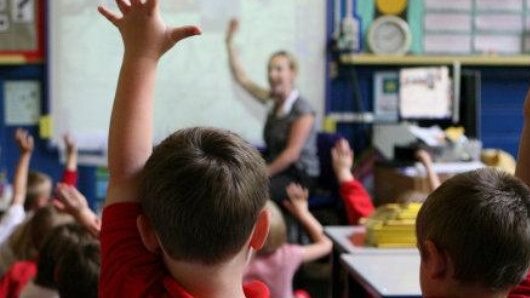Naplan: Research team to improve learning
Groundbreaking research will aim to identify the common gaps in Australian students’ key literacy and numeracy skills in a bid to boost education outcomes across the school system.

Groundbreaking research will aim to identify the common gaps in Australian students’ key literacy and numeracy skills in a bid to boost education outcomes across the school system.
The recently established Australian Education Research Organisation is analysing more than a decade’s worth of NAPLAN data in order to pinpoint deficiencies in student learning and areas where classroom instruction could be improved.
It is one of 16 initial research projects signed off by the board of the government funded organisation in its first year of operation.
AERO chief executive Jenny Donovan compared the project to “getting under the hood” of NAPLAN results to find out “what it can tell us about students’ learning of the curriculum”.
“If NAPLAN can show us that students have consistently found certain skills difficult, then we have a starting point for improvement,” Dr Donovan said.
Held each year in May, NAPLAN is a series of tests that measure students’ knowledge and skills across several domains: reading, writing, spelling, grammar and punctuation, and numeracy.
Schools are able to use the resulting data to track the performance of student cohorts over time and identify individual students who might need additional support. The results can also help teachers identify any gaps in their students’ learning.
Despite this, the assessment remains controversial. The teachers’ union has repeatedly called on the government to scrap the “high-stakes test”, arguing that it does nothing to improve school or students’ education outcomes.
The AERO research, however, will focus on the more granular skills that fall within the domains – such as sentence-writing and use of clauses for grammar, and algebra, measurement and statistics for numeracy – to determine the areas where students score the lowest and make the least gain as they progress through the year levels.
Dr Donovan said the research had already identified writing as a weakness, with students’ results “getting progressively worse” over the course of testing.
“In writing, we’re finding that students cannot consistently identify what constitutes a correctly constructed sentence,” she said. “Run-on sentences tend to be a problem, with students mistaking them for complexity.”
Dr Donovan said the research would culminate in the release of guidance for schools that would direct teachers to the most effective practices to support learning.
“In the case of writing … resources will really hone in on the fundamentals in a way that will help teachers who may not have previously focused on it as a skill, such as a Year 8 science teacher who might not have seen themselves as a teacher of writing before but where there is still an expectation that students will be able to write.”
AERO, which was formed in 2020 with $50m in funding from federal, state and territory governments, has already released a series of guidance notes for educators spelling out evidence-backed teaching practices, such as explicit instruction and classroom management.
It recently published its first research agenda identifying seven priority areas, that include literacy and numeracy, wellbeing, educational disadvantage and improving outcomes for young Indigenous Australians.
Australian Curriculum, Assessment and Reporting Authority chief executive David de Carvalho, who oversees NAPLAN, welcomed the project.
“A key purpose of NAPLAN is to see how well education programs are working, identify areas for improvement and inform curriculum planning and intervention programs,” he said.
“We now have more than 10 years of NAPLAN data, which can provide system-wide insights, and we are supporting AERO to help generate high quality, evidence-based insights from NAPLAN data.”



To join the conversation, please log in. Don't have an account? Register
Join the conversation, you are commenting as Logout